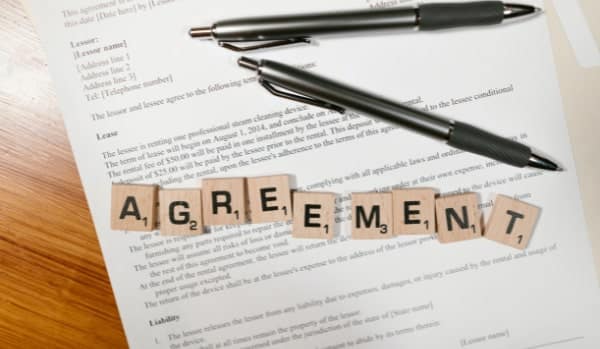The lease commencement date typically marks the beginning of the lease term for all purposes. This is regardless of whether the tenant has actually taken possession of the space. However, it applies as long as beneficial occupancy is possible. In other words, it is the point at which the lease term and benefits officially commence.
When managing commercial properties, it’s crucial to track the commencement dates for each of your lease agreements. Here’s what you need to know about lease commencement dates vs. rent commencement dates.
What is a Lease Commencement Date?
A lease commencement date is the anniversary of the day that you and your tenant signed the lease agreement. For both parties, it is the official start date of when their rights and duties under the lease deal begin. In some cases, the commencement date is when the property is publicly ready to be occupied. This could be days or even weeks before you move your things in.
As soon as the lease start date comes around, you and your landlord must follow the lease rules. In this case, you have certain rights. However, you must also take care of repairs and maintenance, and know how to use the land.
Generally, even if you haven’t moved into the property yet, you usually have to start paying rent on the date the lease begins. Even though you aren’t living there yet, you will have to start paying rent on this date. You will continue paying rent every day until the end of the lease.
What is a Rent Commencement Date?
As of the commencement date of the commercial lease agreement, the tenant must begin paying rent for the use of the leased property. It might not be the same as the start date of the lease. This is especially true if the lease includes a grace period for tenant improvements or lower rent.
Often, the property requires certain improvements before the tenant moves in. The lease commencement date typically marks the start of the lease. However, if the place has to be built out or finished before it can be occupied, the lease will then have an official rent commencement date. This period, associated with the buildout, marks the start and end of the tenant’s free rent time. Rent commencement begins either after the space is finished and ready to be occupied, or when the first month’s rent is due.
Why May They Be Different
If the contract specified a free rent period, the lease commencement and rent commencement dates will be different.
For example, let’s say you and your tenant entered into a contract in April. The tenant didn’t open for business and begin paying rent until June. In this case, the lease commencement date will be in April. If the rent escalation is scheduled to occur on the anniversary of signing the lease, their rent increase will take effect in April of the following year. This applies even though they haven’t yet paid for twelve months of rent.
To ensure that everything is spelled out clearly, the language in the lease should look something like this:
“The lease commencement date is April 12, 2026.
The rent shall commence the later of 120 days after the lease commencement date or the tenant’s opening for business, whichever is sooner.”
The language will vary depending on the specific details of the agreement. Notice how the lease commencement date is clearly written out. Write your leases so that if you ever have any questions about when an escalation should occur, all you have to do is look at the original lease agreement.
It should also specify the amount and timing of the rent increase. Whether it is a fixed increase, a percentage increase, or an inflation-adjusted increase, ensure that it is stated clearly. Spell out whether the increase is to occur annually or at another interval of time, such as once every three years. This also applies upon renewal of the lease.
Why It’s Important to Keep Track
As a landlord, it is your responsibility to manage each of your leases accurately and fairly, including calculating escalations. This can be particularly challenging if you manage multiple leases with varying terms, and it is all managed in a spreadsheet. Spreadsheet management is the most common cause we see for missing lease escalations, renewals, and expirations.
Your tenant is unlikely to come to you and remind you when it’s time for their annual rent increase. It is up to you, as the property manager or owner, to keep track of important dates like these.
If the lease states that escalations will occur on the anniversary of the lease commencement date, you need to invoice tenants accordingly. Failing to do so can result in disgruntled tenants when you invoice them later, all due to a mistake that you made. This looks unprofessional.
How to Keep Track of Important Dates and Lease Escalations
STRATAFOLIO makes it easy to track when all of your escalations will occur. You won’t have to manually go through and set up all your lease escalations. STRATAFOLIO automates it for you, freeing up your time to focus on growing your business! Schedule a 1:1 demo to see how STRATAFOLIO can streamline and improve your commercial real estate business.






